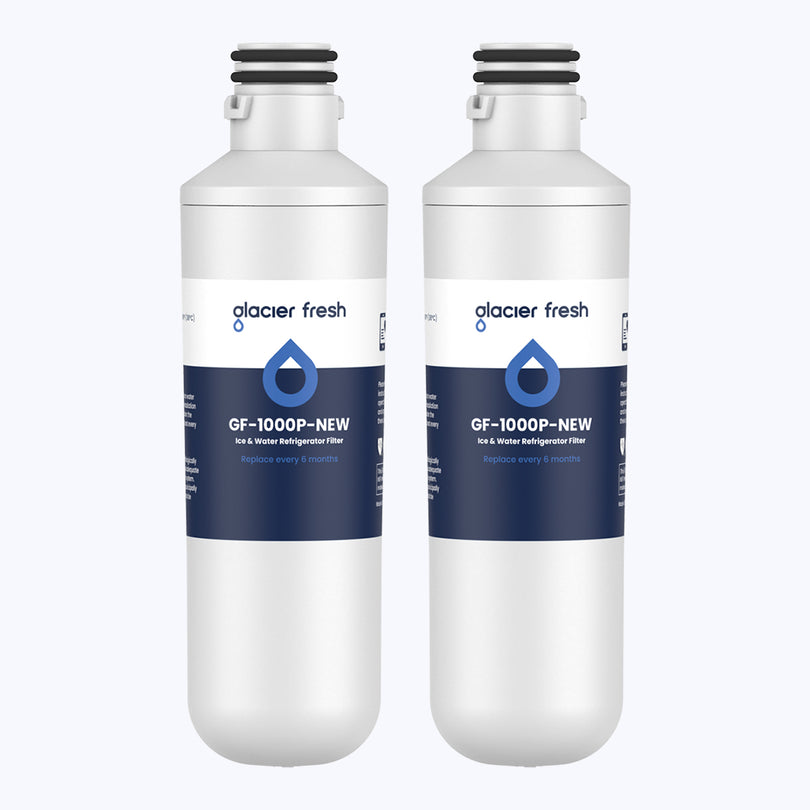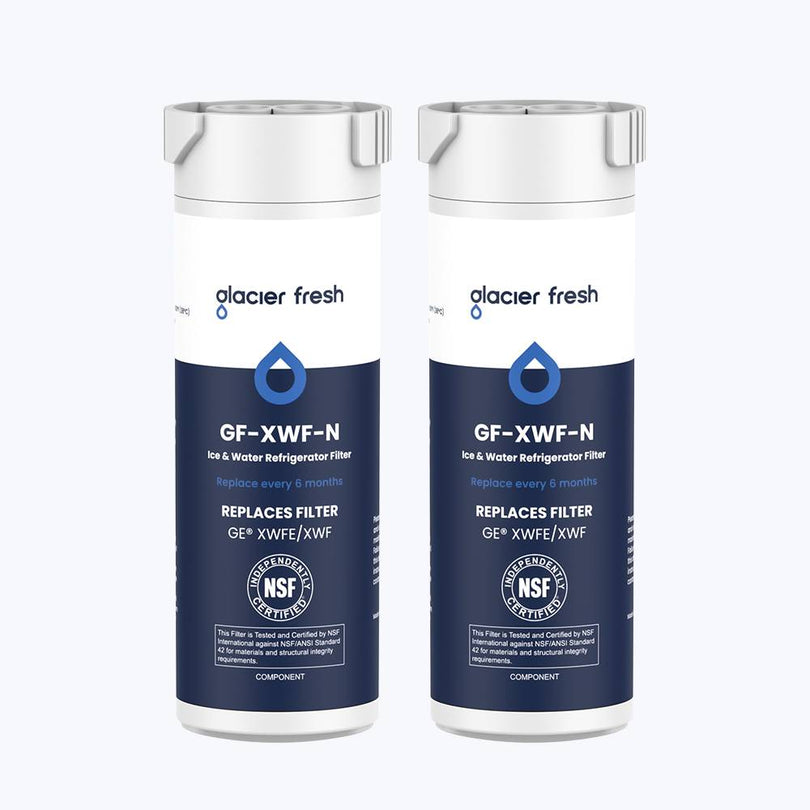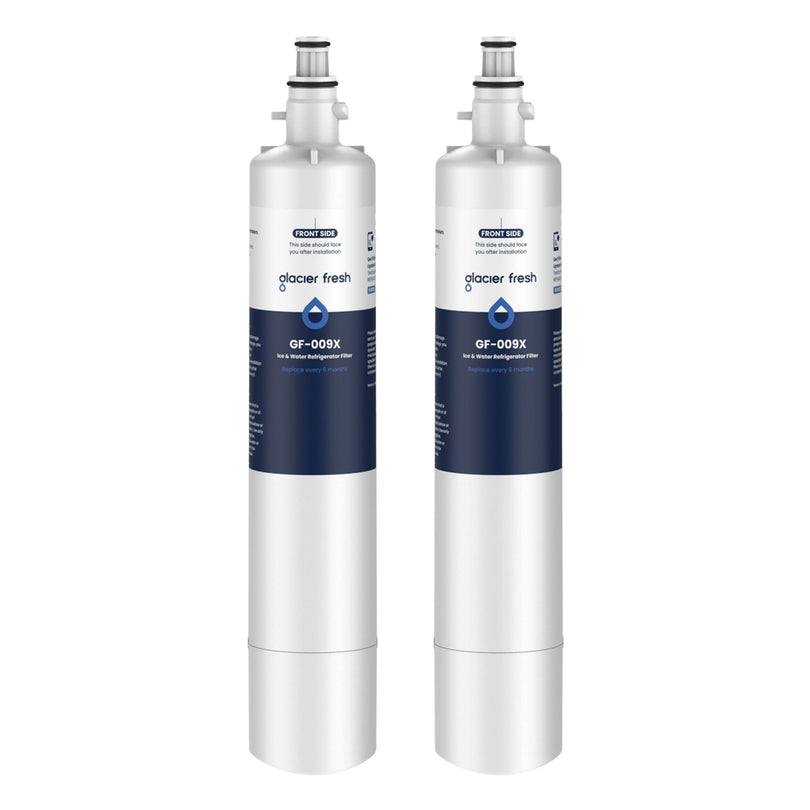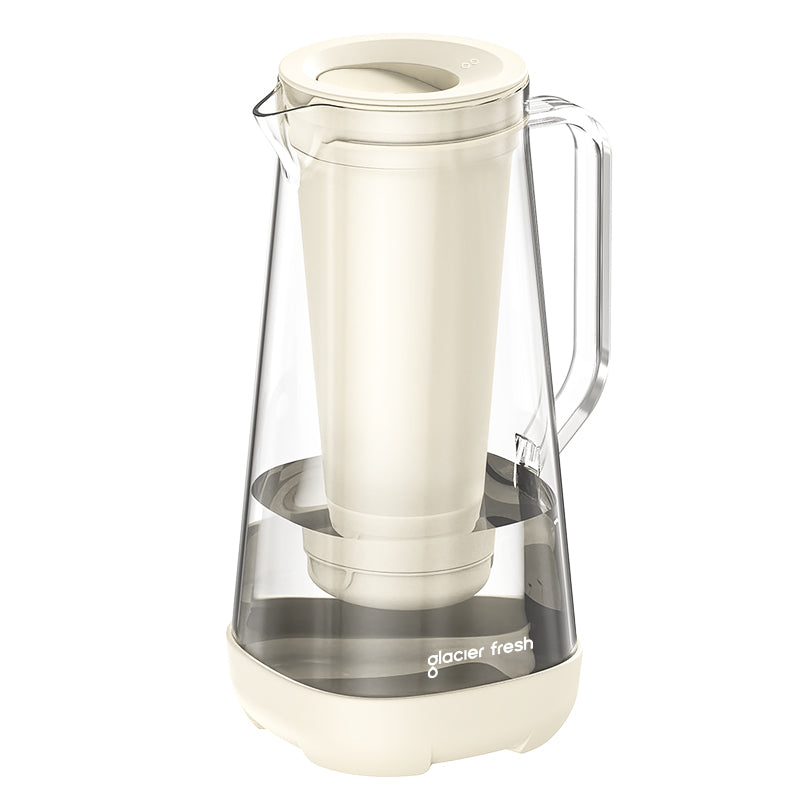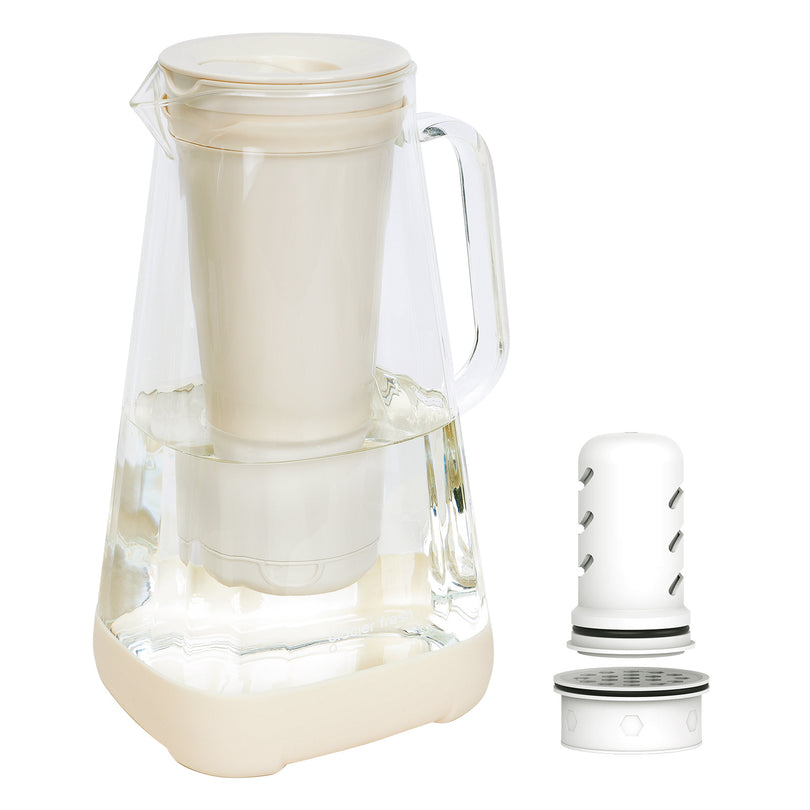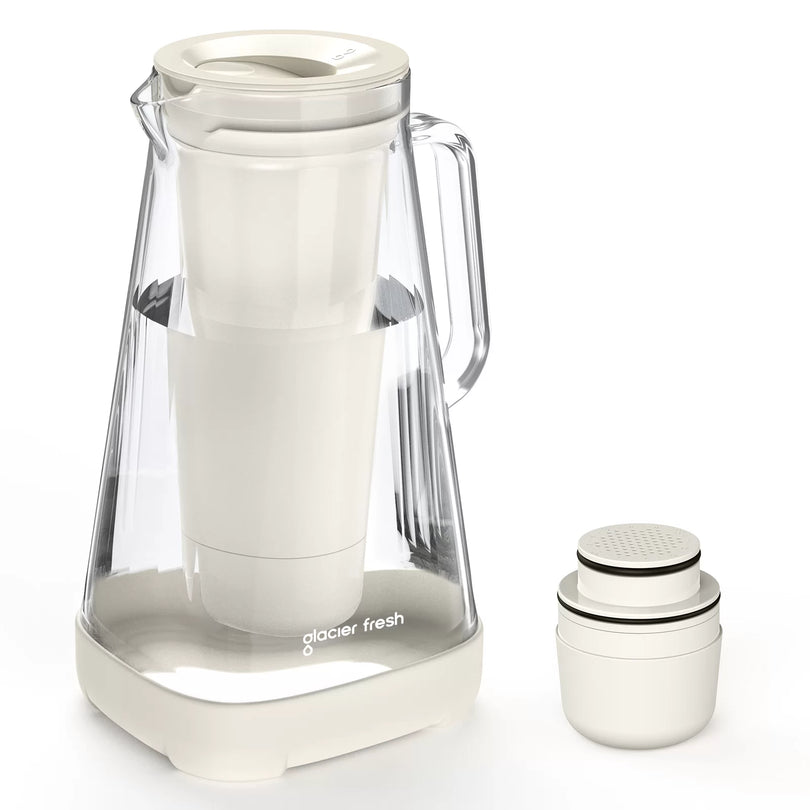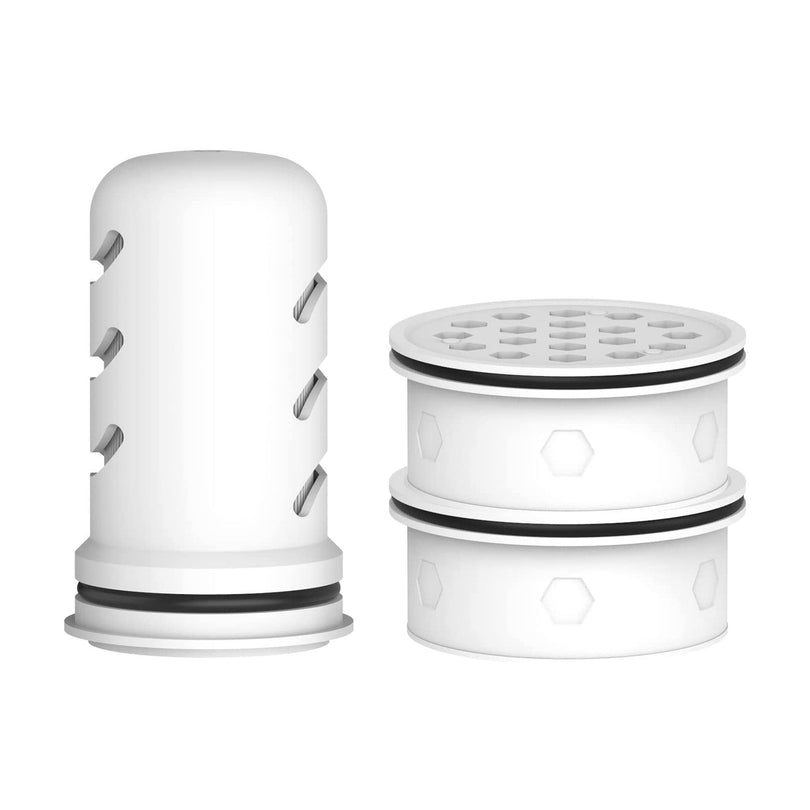Table of Contents:
Warum ist eine ausreichende Flüssigkeitszufuhr während der Schwangerschaft wichtig?
Die Vorteile einer ausreichenden Flüssigkeitszufuhr während der Schwangerschaft
Empfohlene Flüssigkeitszufuhr während der Schwangerschaft
Faktoren, die den Flüssigkeitsbedarf während der Schwangerschaft beeinflussen
Tipps zur Aufrechterhaltung der Flüssigkeitszufuhr, um Frühgeburten vorzubeugen
FAQs
Abschluss
Eine ausreichende Flüssigkeitszufuhr während der Schwangerschaft ist entscheidend für die Gesundheit von Ihnen und Ihrem Baby. Sie steigert die Energie, unterstützt die Entwicklung des Fötus und senkt das Risiko einer Frühgeburt. Achten Sie darauf, täglich ausreichend Wasser zu trinken. Achten Sie auf die Farbe Ihres Urins, um Ihren Flüssigkeitshaushalt zu überwachen. Eine ausreichende Flüssigkeitszufuhr beugt außerdem Beschwerden vor und unterstützt die Verdauung.
Für eine angenehme Abwechslung sorgen aromatisiertes Wasser oder Kräutertees. Ausreichende Flüssigkeitszufuhr ist ein wichtiges Mittel für das Wohlbefinden von Mutter und Kind. Es ist eine einfache und effektive Möglichkeit, sich und Ihr Kind zu pflegen.
Warum ist eine ausreichende Flüssigkeitszufuhr während der Schwangerschaft wichtig?
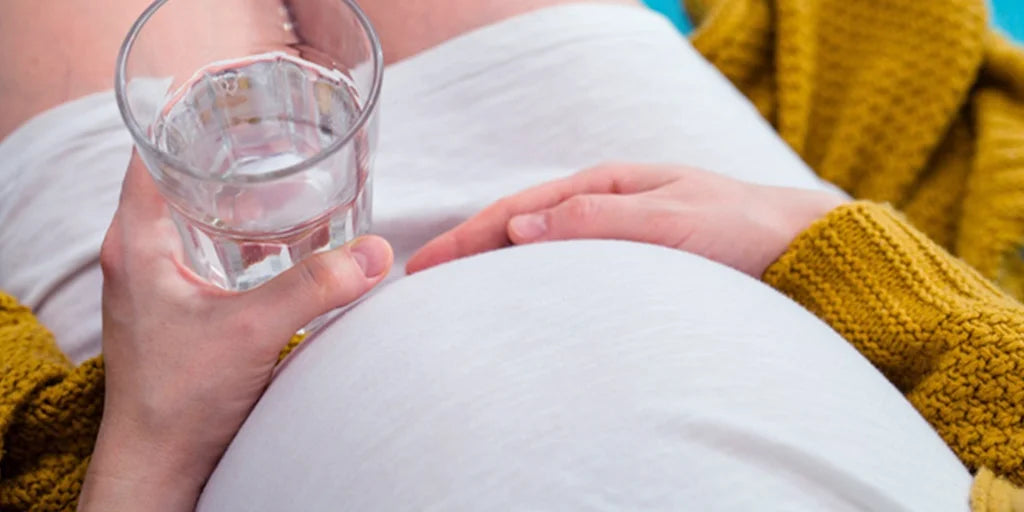
Eine ausreichende Flüssigkeitszufuhr während der Schwangerschaft ist entscheidend für Ihre Gesundheit und das Wohlbefinden Ihres ungeborenen Kindes. Sie trägt entscheidend dazu bei, Ihr Energieniveau während der Schwangerschaft aufrechtzuerhalten. Dehydration kann zu Müdigkeit und Erschöpfung führen und die körperlichen Belastungen der Schwangerschaft erschweren. Indem Sie ausreichend trinken, können Sie dieser Müdigkeit entgegenwirken und Ihre Energie aufrechterhalten.
Darüber hinaus ist eine ausreichende Flüssigkeitszufuhr für eine optimale Entwicklung des Fötus unerlässlich. Wasser ist ein wichtiger Bestandteil der Bildung der Plazenta und des Fruchtwassers, das Ihr Baby umgibt. Es trägt zum Transport wichtiger Nährstoffe zum Fötus bei und unterstützt die Entwicklung von Organen und Gewebe. Eine ausreichende Flüssigkeitszufuhr unterstützt zudem eine gesunde Durchblutung, die für das Wachstum und das allgemeine Wohlbefinden des Babys entscheidend ist.
Darüber hinaus kann eine ausreichende Flüssigkeitszufuhr den Geburtsverlauf positiv beeinflussen. Dehydration kann zu Komplikationen während der Wehen führen, wie z. B. verminderten Gebärmutterkontraktionen und einer langsameren Öffnung des Muttermunds. Ausreichend Wasser zu trinken trägt dazu bei, dass Ihr Körper während der Wehen optimal funktioniert, was möglicherweise zu einer reibungsloseren und effizienteren Geburt führt.
Die Vorteile einer ausreichenden Flüssigkeitszufuhr während der Schwangerschaft
Aufrechterhaltung des Fruchtwasserspiegels
Eine ausreichende Flüssigkeitszufuhr während der Schwangerschaft trägt wesentlich zur Aufrechterhaltung eines optimalen Fruchtwasserspiegels bei und unterstützt die fetale Entwicklung sowie die allgemeine Gesundheit der Mutter. Ein ausgeglichener Fruchtwasserhaushalt ist entscheidend für die Polsterung des Fötus, die Lungenentwicklung und die Vermeidung einer Nabelschnurkompression. Trinkstrategien wie der Verzehr wasserreicher Lebensmittel, das Mitführen einer wiederverwendbaren Wasserflasche für den schnellen Zugriff und Trinkerinnerungen können Ihnen helfen, Ihren Flüssigkeitsbedarf zu decken. Denken Sie daran: Die Flüssigkeitszufuhr der Mutter geht über das bloße Löschen des Durstes hinaus; sie beeinflusst direkt das Fruchtwasservolumen, das für Ihr Wohlbefinden und das Ihres Babys von entscheidender Bedeutung ist. Sorgen Sie für eine ausreichende Flüssigkeitszufuhr für eine reibungslose Schwangerschaft.
Regulierung der Körpertemperatur
Um während der Schwangerschaft eine angenehme Körpertemperatur aufrechtzuerhalten, ist eine ausreichende Flüssigkeitszufuhr entscheidend, da sie zur effektiven Regulierung der Körpertemperatur beiträgt. Die Schweißregulierung ist in dieser Zeit entscheidend, da Ihr Körper stärker zur Abkühlung arbeitet, was zu einem erhöhten Flüssigkeitsverlust führt.
Ohne ausreichende Flüssigkeitszufuhr kann es zu einer Überhitzung der Mutter kommen, die sowohl für Sie als auch für Ihr Baby ein Risiko darstellt. Hormonelle Veränderungen und ein erhöhter Stoffwechsel können zu Problemen bei der Thermoregulation führen. Daher ist es wichtig, ausreichend zu trinken, um Ihren Körper bei der Bewältigung dieser Schwankungen zu unterstützen.
Unterstützung des Nährstofftransports
Eine ausreichende Flüssigkeitszufuhr während der Schwangerschaft spielt eine entscheidende Rolle bei der Erleichterung des Transports wichtiger Nährstoffe und unterstützt so Ihre Gesundheit und die Ihres Babys.
- Unterstützung des Kreislaufs : Eine ausreichende Flüssigkeitszufuhr trägt dazu bei, ein ausreichendes Blutvolumen aufrechtzuerhalten, sodass Nährstoffe effizient durch Ihren Blutkreislauf transportiert werden können, um sowohl Sie als auch Ihr heranwachsendes Baby zu ernähren.
- Förderung des Wachstums : Indem Sie ausreichend Flüssigkeit zu sich nehmen, unterstützen Sie das Wachstum und die Entwicklung Ihres Babys und geben ihm die notwendigen Bausteine für eine gesunde Entwicklung.
- Sicherstellung der Ernährung : Durch ausreichende Flüssigkeitszufuhr wird sichergestellt, dass die Nährstoffe aus der Nahrung, die Sie zu sich nehmen, effektiv zu Ihrem Baby transportiert werden. Dies fördert eine optimale Ernährung und das allgemeine Wohlbefinden beider.
Vorbeugung häufiger Schwangerschaftsbeschwerden
Eine ausreichende Flüssigkeitszufuhr während der Schwangerschaft kann häufigen Beschwerden vorbeugen und das allgemeine Wohlbefinden von Ihnen und Ihrem Baby fördern. Ausreichende Flüssigkeitszufuhr kann die morgendliche Übelkeit lindern, indem sie die Magenschleimhaut mit Feuchtigkeit versorgt und so die Wahrscheinlichkeit von Übelkeit verringert.
Geschwollene Knöchel, ein häufiges Schwangerschaftsproblem, können durch ausreichende Flüssigkeitszufuhr ebenfalls minimiert werden, da Flüssigkeit den Elektrolythaushalt ausgleicht und Wassereinlagerungen vorbeugt. Darüber hinaus kann ausreichende Flüssigkeitszufuhr Sodbrennen lindern, indem sie die Verdauung fördert und die für die Beschwerden verantwortliche Säure reduziert.
Förderung einer gesunden Verdauung und Ausscheidung
Eine ausreichende Flüssigkeitszufuhr während der Schwangerschaft kann die Verdauung und Ausscheidung erheblich unterstützen. Hier sind drei Gründe, warum eine ausreichende Flüssigkeitszufuhr Ihre Darmgesundheit und Ihr allgemeines Wohlbefinden fördert:
- Verbesserte Verdauungsfunktion : Eine ausreichende Wasseraufnahme trägt dazu bei, den Stuhl weicher zu machen und Verstopfung vorzubeugen, die während der Schwangerschaft häufig auftritt.
- Reduzierte Wassereinlagerung : Überraschenderweise kann eine ausreichende Flüssigkeitszufuhr dazu beitragen, die Wassereinlagerung zu reduzieren, die oft zu Blähungen und Unwohlsein führt.
- Aufrechterhaltung des Flüssigkeitshaushalts : Eine ausreichende Flüssigkeitszufuhr unterstützt die Schleimhaut Ihres Darms, unterstützt die Aufnahme wichtiger Nährstoffe und fördert einen regelmäßigen Stuhlgang.
Empfohlene Flüssigkeitszufuhr während der Schwangerschaft

Für eine optimale Gesundheit während der Schwangerschaft ist es wichtig, täglich ausreichend zu trinken. Die Trinkrichtlinien empfehlen Schwangeren, täglich etwa 8 bis 12 Tassen Flüssigkeit zu trinken. Eine ausreichende Flüssigkeitszufuhr ist entscheidend für die Flüssigkeitszufuhr während der Schwangerschaft und den erhöhten Flüssigkeitsbedarf.
Eine ausreichende Flüssigkeitsaufnahme spielt eine entscheidende Rolle bei der Aufrechterhaltung des Fruchtwasserspiegels, unterstützt das erhöhte Blutvolumen, fördert die Entwicklung der Plazenta und hilft, häufigen Problemen wie Verstopfung und Harnwegsinfektionen vorzubeugen.
Es ist wichtig, auf die Durstsignale Ihres Körpers zu hören, da diese während der Schwangerschaft verstärkt sein können. Wasser ist in der Regel die beste Wahl zur Flüssigkeitszufuhr, aber auch andere Optionen wie Kräutertees, Milch und 100%ige Fruchtsäfte können zu Ihrer täglichen Flüssigkeitsaufnahme beitragen. Denken Sie daran, dass Faktoren wie körperliche Aktivität, Klima und allgemeiner Gesundheitszustand Ihren Flüssigkeitsbedarf beeinflussen können. Daher ist es wichtig, Ihre Flüssigkeitszufuhr entsprechend anzupassen. Ein Gespräch mit Ihrem Arzt kann Ihnen helfen, den besten Flüssigkeitsplan für Ihre individuelle Schwangerschaft zu finden.
Faktoren, die den Flüssigkeitsbedarf während der Schwangerschaft beeinflussen
Während der Schwangerschaft können verschiedene Faktoren Ihren Flüssigkeitsbedarf beeinflussen, um optimale Gesundheit und Wohlbefinden zu gewährleisten.
- Dehydrationsrisiken: Der erhöhte Bedarf Ihres Körpers während der Schwangerschaft macht Sie anfälliger für Dehydration. Faktoren wie morgendliche Übelkeit, übermäßiges Schwitzen und ein erhöhter Stoffwechsel können zu Flüssigkeitsverlust führen, was die Bedeutung einer ausreichenden Flüssigkeitszufuhr über den Tag hinweg unterstreicht.
- Elektrolythaushalt: Ein ausgeglichener Elektrolythaushalt ist entscheidend für Ihre Gesundheit und die Ihres Babys. Elektrolyte wie Natrium, Kalium und Magnesium spielen eine wichtige Rolle bei der Flüssigkeitszufuhr, der Nervenfunktion und der Muskelkontraktion. Während der Schwangerschaft kann es leichter zu Ungleichgewichten kommen, was die Notwendigkeit einer ausreichenden Flüssigkeitszufuhr unterstreicht.
- Flüssigkeitszufuhr der Mutter: Ihre Flüssigkeitszufuhr wirkt sich direkt auf den Fruchtwasserspiegel Ihres Babys aus, der als Polster und Schutz dient. Eine ausreichende Flüssigkeitszufuhr der Mutter unterstützt den Transport wichtiger Nährstoffe, hilft bei der Regulierung der Körpertemperatur und unterstützt die Ausscheidung von Abfallprodukten – alles wichtige Faktoren für eine gesunde Schwangerschaft.
Denken Sie daran, auf die Durstsignale Ihres Körpers zu hören und legen Sie Wert auf eine regelmäßige Flüssigkeitsaufnahme, um sowohl Ihr Wohlbefinden als auch das Ihres Babys zu fördern.
Tipps zur Aufrechterhaltung der Flüssigkeitszufuhr, um Frühgeburten vorzubeugen

Eine ausreichende Flüssigkeitszufuhr während der Schwangerschaft kann das Risiko einer Frühgeburt deutlich senken und das Wohlbefinden von Ihnen und Ihrem Baby fördern. Eine ausreichende Wasseraufnahme ist entscheidend für die Gesundheit der Mutter und kann Komplikationen wie Frühgeburten vorbeugen.
Um die Flüssigkeitszufuhr zu verbessern, sollten Sie elektrolytausgleichende Lebensmittel oder Getränke in Ihren Speiseplan integrieren. Trinktechniken wie das Mitführen einer Wasserflasche können Sie daran erinnern, regelmäßig zu trinken. Trinken Sie Wasser in kleinen Schlucken, anstatt große Mengen auf einmal zu sich zu nehmen, um einen konstanten Flüssigkeitshaushalt zu gewährleisten. Zusätzlich können aromatisiertes Wasser oder Kräutertees die Flüssigkeitszufuhr angenehmer machen.
Die Beobachtung der Urinfarbe kann ebenfalls Aufschluss über Ihren Flüssigkeitshaushalt geben. Achten Sie auf eine hellgelbe Urinfarbe als Indikator für ausreichende Flüssigkeitszufuhr. Indem Sie der Flüssigkeitszufuhr Priorität einräumen und diese Tipps in Ihren Alltag integrieren, können Sie das Risiko einer Frühgeburt verringern und eine gesunde Schwangerschaft für Sie und Ihr Baby fördern.
FAQs
Kann zu viel Wassertrinken während der Schwangerschaft schädlich sein?
Zu viel Wasser während der Schwangerschaft kann zu einer Wasservergiftung führen, die ein Elektrolytungleichgewicht verursacht und Ihnen und Ihrem Baby schaden kann. Es ist wichtig, ausreichend zu trinken und eine übermäßige Aufnahme zu vermeiden.
Gibt es bestimmte Getränke, die während der Schwangerschaft zur Flüssigkeitszufuhr vermieden werden sollten?
Während der Schwangerschaft ist es wichtig, Getränke mit hohem Koffein-, Alkohol- und Zuckergehalt zu vermeiden. Greifen Sie stattdessen zu Wasser, fettarmer Milch und 100% Fruchtsaft. So bleiben Sie ausreichend hydriert und unterstützen die Entwicklung Ihres Babys. Ihre Gesundheit und Ihr Wohlbefinden haben in dieser wichtigen Zeit oberste Priorität. Eine ausgewogene und nahrhafte Ernährung sowie ausreichend Flüssigkeitszufuhr sind der Schlüssel zu einer gesunden Schwangerschaft.
Abschluss
Zusammenfassend lässt sich sagen, dass eine ausreichende Flüssigkeitszufuhr während der Schwangerschaft entscheidend für die Gesundheit von Mutter und Kind ist. Indem Sie den erhöhten Flüssigkeitsbedarf decken, können Sie Komplikationen wie Frühgeburten vorbeugen und optimale Ergebnisse für Sie und Ihr Baby erzielen. Denken Sie daran, viel Wasser zu trinken, Ihre Flüssigkeitsaufnahme zu überwachen und auf die Durstsignale Ihres Körpers zu hören. Eine ausreichende Flüssigkeitszufuhr ist ein einfacher, aber effektiver Weg, eine gesunde Schwangerschaft zu unterstützen.


